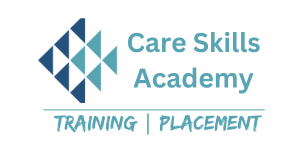In today’s tech-driven world, electronics play a central role in almost every aspect of life. At the heart of most electronic devices is the Printed Circuit Board (PCB), a complex network of circuits that make our gadgets function. As devices become more advanced and integrated, the demand for skilled professionals who can repair and maintain PCBs has surged. A PCB repairing course is an excellent gateway into this technical and ever-growing field.
What is a PCB?
A Printed Circuit Board (PCB) is a thin board made of a non-conductive material with conductive paths etched or printed onto it. Components like resistors, capacitors, transistors, and integrated circuits are soldered onto the PCB to form a complete electronic circuit. This board serves as the foundation of electronic devices, from smartphones and computers to TVs and industrial machinery. When a PCB malfunctions, the entire device could become inoperable, making PCB repair skills highly valuable.
Why Take a PCB Repairing Course?
- High Demand for PCB Technicians: The electronics repair industry is booming, with skilled PCB repair technicians in high demand. This demand covers industries such as consumer electronics, automotive, medical devices, industrial machinery, and telecommunications.
- Career Opportunities: PCB repair specialists can find employment in various roles, from repair technician and quality control specialist to assembly operator and field service engineer. Some professionals even go on to start their own repair businesses.
- Problem-Solving Skills: PCB repair involves troubleshooting, critical thinking, and patience. Learning these skills improves your understanding of electronics and equips you to tackle various challenges in the tech field.
What You’ll Learn in a PCB Repairing Course
A comprehensive PCB repairing course generally covers the following key areas:
- PCB Basics: Understanding the components of a PCB, the different types of boards (single-layer, multi-layer, flexible), and the essential materials involved.
- Soldering Techniques: Mastering soldering and desoldering techniques, which are critical for removing damaged components and replacing them without harming the board.
- Troubleshooting and Diagnosis: Learning to identify and diagnose faults, from broken traces and damaged components to soldering issues and short circuits.
- Testing Tools and Equipment: Using tools like multimeters, oscilloscopes, and power supplies to test circuits, locate faults, and ensure repairs are effective.
- Advanced Repairs: Gaining skills in complex repairs, including fixing multi-layer PCBs, repairing surface-mount technology (SMT) components, and addressing connectivity issues.
Benefits of a PCB Repairing Course
- Practical Training: These courses usually offer hands-on training in a lab, where students work with real PCBs. This practical experience is crucial for building confidence and skill.
- Cost-Effective Skill: With proper training, you can save money on repairs, as fixing a PCB is often more economical than replacing the entire board or device.
- Flexible Learning Options: Many institutions offer PCB repair courses both online and in-person, allowing you to learn at your own pace and convenience.
- Certification and Credibility: Completing a certified PCB repair course gives you credibility and can enhance your employability. Certifications also signify that you’ve met certain industry standards, which can be valuable in a competitive job market.
Who Should Take This Course?
A PCB repair course is ideal for electronics enthusiasts, technicians, engineering students, or anyone interested in learning a valuable skill. Whether you’re starting in electronics or seeking to upskill, a PCB repair course opens doors to a range of technical roles and opportunities.
Final Thoughts
A PCB repairing course is a practical, skill-based program that empowers individuals with the knowledge and expertise needed in a digital world. With hands-on experience and a structured curriculum, it provides a strong foundation for a career in electronics repair and maintenance. As technology continues to advance, the need for PCB repair specialists will remain steady, making this course a worthwhile investment for a sustainable and fulfilling career path.
4o

